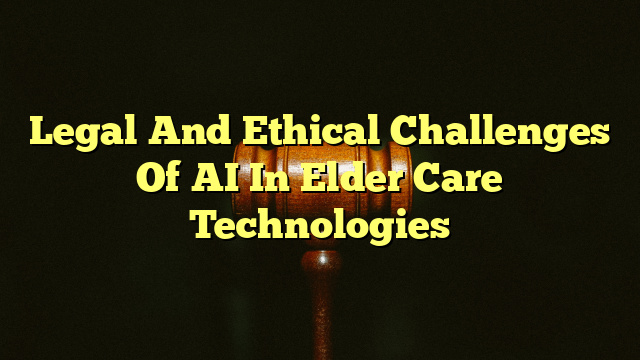Table of Contents
Legal Challenges of AI in Healthcare
AI technology has the potential to revolutionize healthcare, but it also presents several legal challenges. One major challenge is ensuring the privacy and security of patient data. AI systems often require access to large amounts of personal health information, and there is a risk of data breaches or unauthorized access. Healthcare organizations must comply with strict data protection laws and regulations to mitigate these risks.
Another legal challenge is liability. If an AI system makes a mistake or causes harm to a patient, who is responsible? Current laws may not adequately address these situations, and there is a need for clear guidelines and regulations to determine liability in AI-related healthcare incidents.
Additionally, there are concerns about the potential for bias in AI algorithms. If these algorithms are trained on biased data, they may perpetuate existing healthcare disparities or discriminate against certain groups of patients. Ensuring fairness and equity in AI healthcare systems is an ongoing legal challenge.
Legal and Ethical Issues with AI
AI technology raises a range of legal and ethical issues. One key issue is the question of informed consent. AI systems often make decisions or recommendations based on complex algorithms that may be difficult for patients to understand. Ensuring that patients have a clear understanding of how AI is being used in their care and obtaining their informed consent is crucial.
Another issue is transparency. AI algorithms can be highly complex and opaque, making it difficult to understand how decisions are being made. This lack of transparency raises concerns about accountability and the ability to challenge or appeal AI-generated decisions.
There are also ethical concerns around the potential for AI to replace human healthcare providers. While AI can enhance efficiency and accuracy, it must be used in a way that preserves the human touch and maintains patient trust. Striking the right balance between AI and human involvement is a significant ethical challenge.
Big Ethical Challenges for Artificial Intelligence in Healthcare
Artificial intelligence in healthcare presents several significant ethical challenges. One of the most pressing challenges is ensuring equity and fairness in AI systems. If AI algorithms are trained on biased data, they may perpetuate existing healthcare disparities or discriminate against certain patient populations. Efforts must be made to address these biases and ensure that AI is used in a way that promotes equal access to care.
Another ethical challenge is the potential for AI to erode patient privacy. AI systems often require access to sensitive health data, and there is a risk of unauthorized access or breaches. Safeguarding patient privacy while harnessing the power of AI is a crucial ethical consideration.
Additionally, there are concerns about the impact of AI on the doctor-patient relationship. Building trust and maintaining open communication between patients and healthcare providers is essential, and AI should be used in a way that enhances this relationship rather than replacing it.
Ethical Concerns of AI Controlled Home Security Systems
AI-controlled home security systems raise several ethical concerns. One concern is the potential for invasions of privacy. These systems often collect and analyze data about individuals’ activities within their homes, raising questions about the appropriate use and storage of this data.
There are also concerns about the potential for bias in AI-controlled home security systems. If these systems are trained on biased data, they may discriminate against certain individuals or groups. Ensuring fairness and equity in the design and implementation of these systems is crucial.
Another ethical concern is the potential for misuse or abuse of AI-controlled home security systems. If these systems are hacked or manipulated, they could be used for nefarious purposes, such as surveillance or harassment. Safeguards must be in place to prevent unauthorized access and protect individuals’ safety and security.
</


The use of AI in elder care can bring numerous advantages, but at the same time presents ethical and legal challenges that must be taken into consideration.